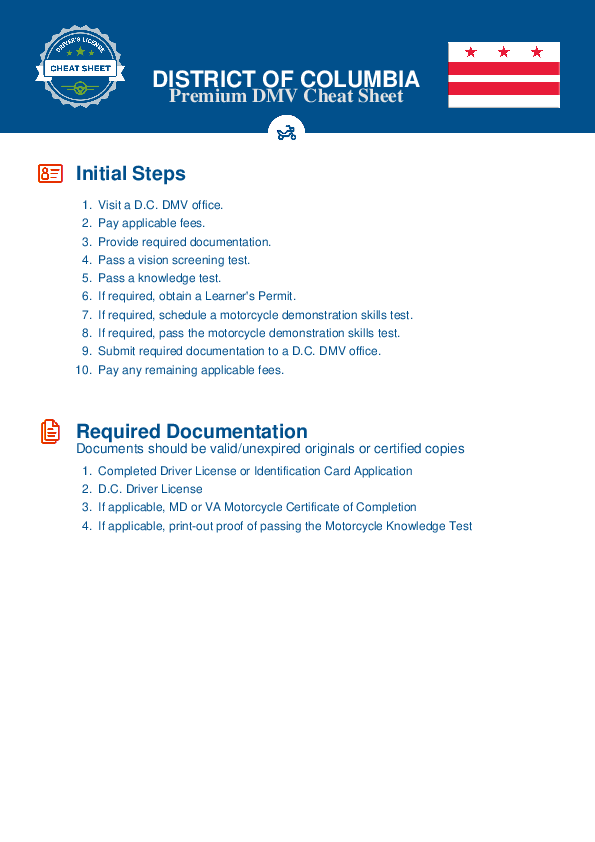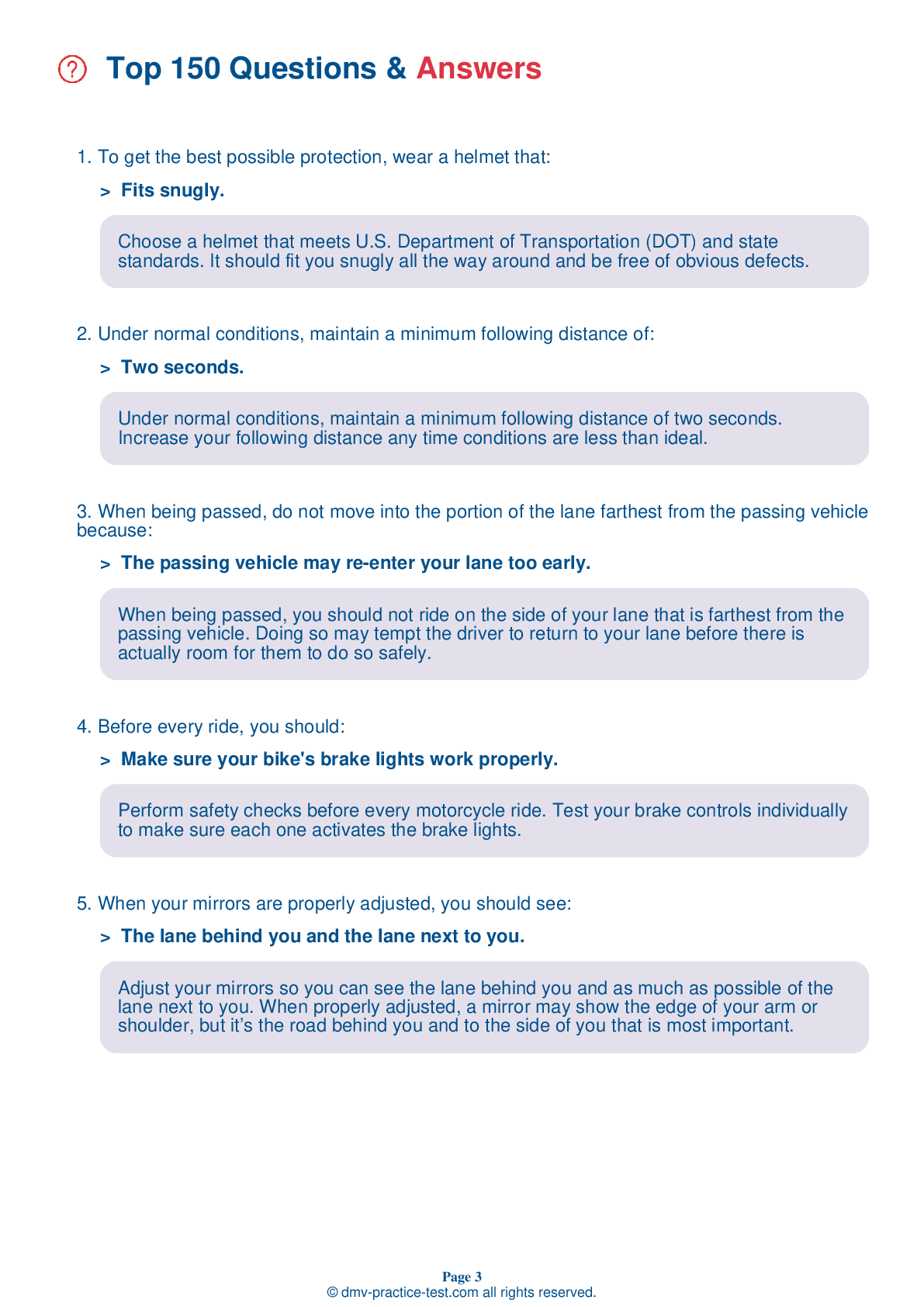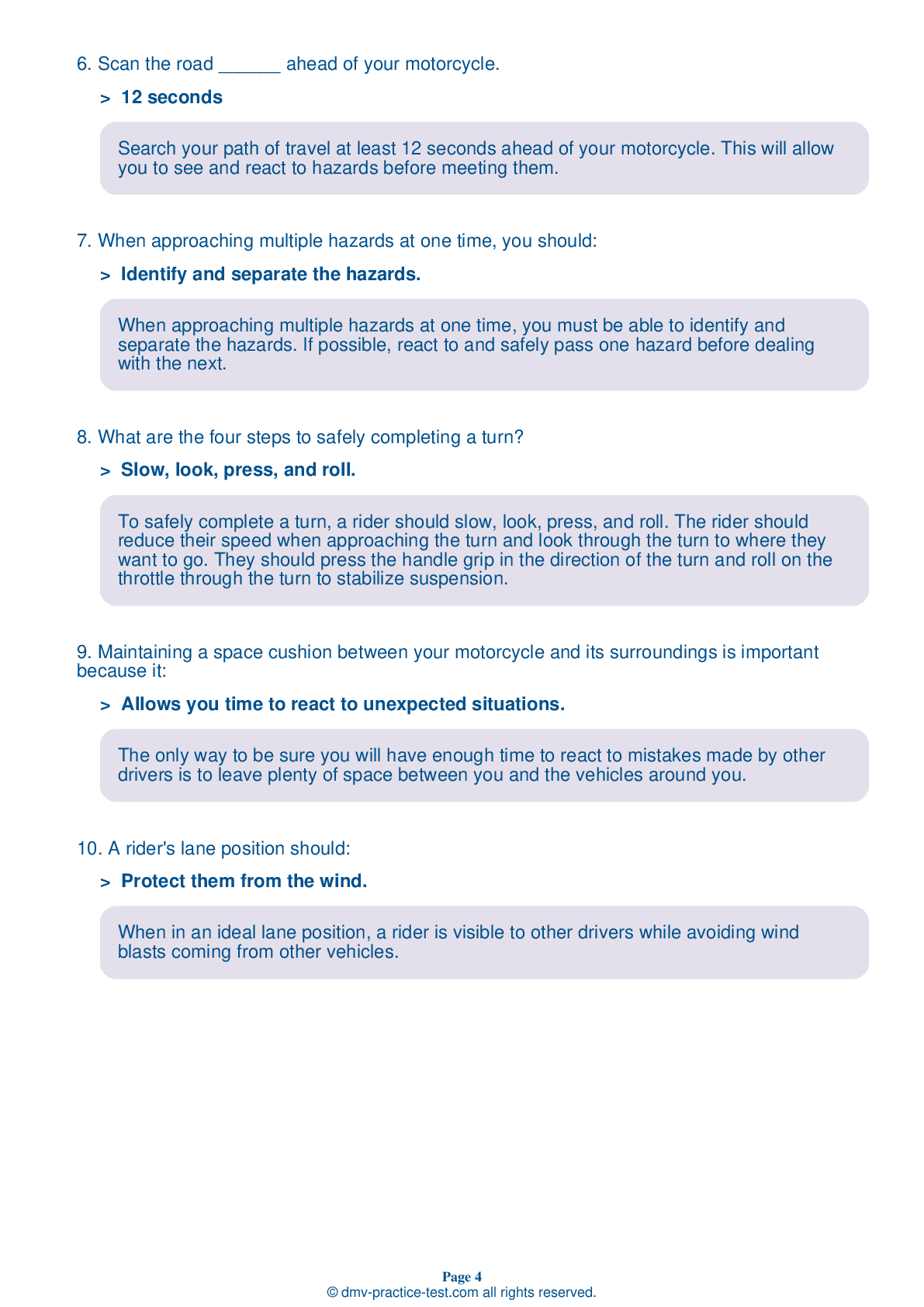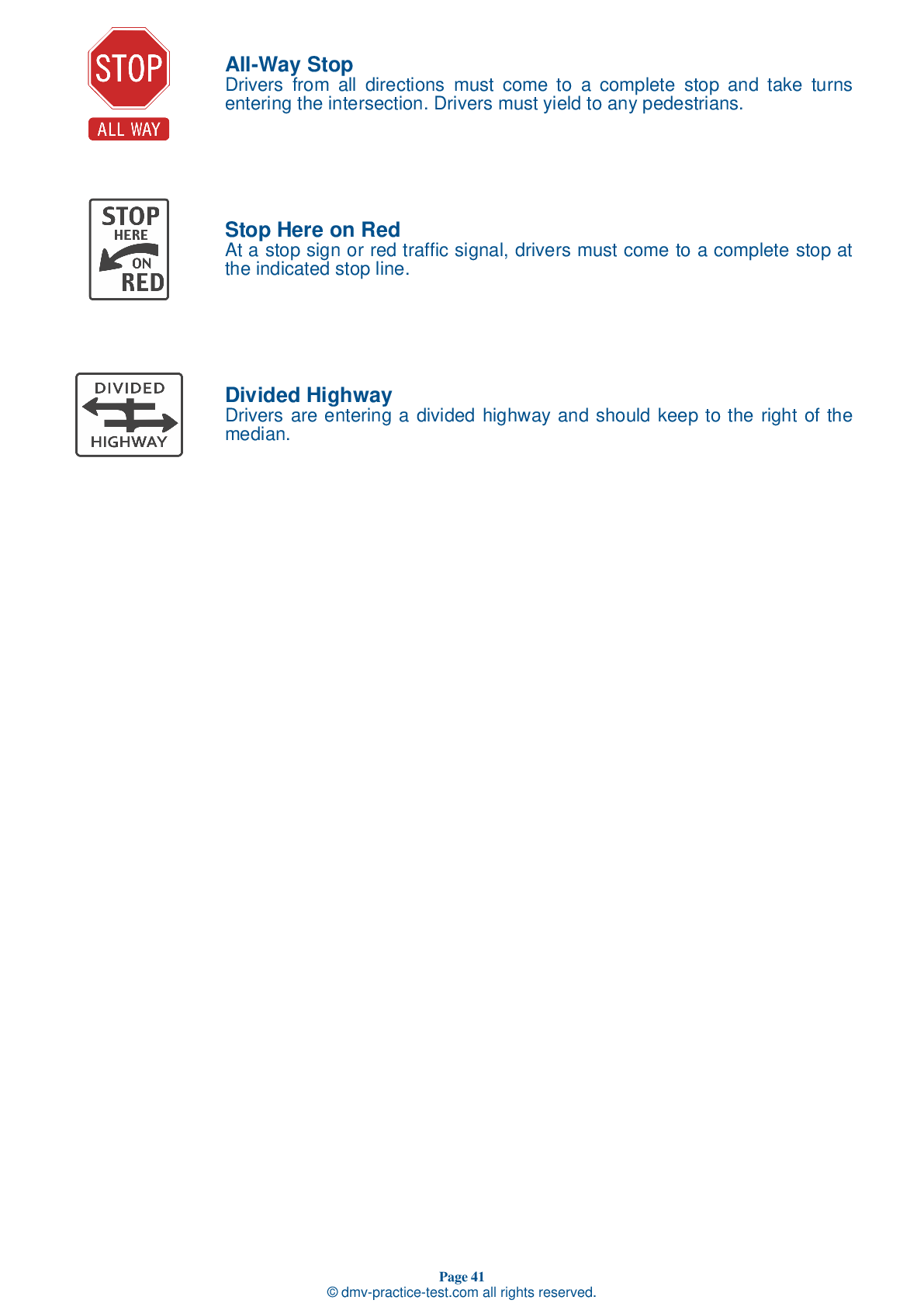Motorcycle Test | License DC 2026 | FREE Online Practice! #8 Page 3 of 4
Take this FREE motorcycle test (license in DC 2026) to check your knowledge of the road rules. To improve your results, download a motorcycle handbook online, study theory, and practice for free on our website. Still worried about how to get a motorcycle license in District Of Columbia in 2026? Check our website for more sample tests, train as much as possible, and boost your grades!
13 . A primary cause of single-vehicle motorcycle collisions is:
A primary cause of single-vehicle collisions is motorcyclists running too wide in a curve or turn. Taking a turn too wide can cause a motorcycle to leave the roadway or collide with an object.
14 . When riding in a group, you should:
When riding in a group, it is generally best to use a staggered formation. Use your mirrors periodically to check on riders behind you. Both the lead and sweep riders should be experienced motorcyclists who know group riding procedures well. Maintain proper space cushions within the group of riders.
15 . Which of the following will protect your eyes from the wind?
Goggles and face shields can protect a rider's eyes from the wind. Windshields, eyeglasses, and sunglasses generally do not shield a rider's eyes adequately enough.
16 . How often should a motorcycle operator check their mirrors?
It is recommended that you frequently check your mirrors to be aware of potential hazards behind you.
17 . To adjust for added weight when riding with a passenger, you should:
The extra weight of a passenger means that your motorcycle will need more time than usual to speed up, slow down, and turn. To accommodate the added weight, you should reduce your speed; start slowing earlier than normal; increase your following distance; and seek out larger gaps when crossing, entering, or merging with traffic.
18 . To carry a passenger, you may need to adjust all of the following, except:
A motorcycle carrying a passenger will sit differently than usual due to the additional weight. You may need to adjust the tire pressure, suspension, shocks, headlight, and mirrors to compensate for the shift.
See the exact questions that will be on the 2026 District Of Columbia DMV exam.
99.2% of people who use the cheat sheet pass the FIRST TIME
Jeneen was tired of paying $5/gallon. She got herself a scooter that required the motorcycle license. She studyed the motorcycle test cheat sheet and passed her test the next day!
Christopher tells us how he knew nothing prior to obtaining the motorcycle study guide, and he only got one question wrong because he clicked on the wrong answer by mistake.



